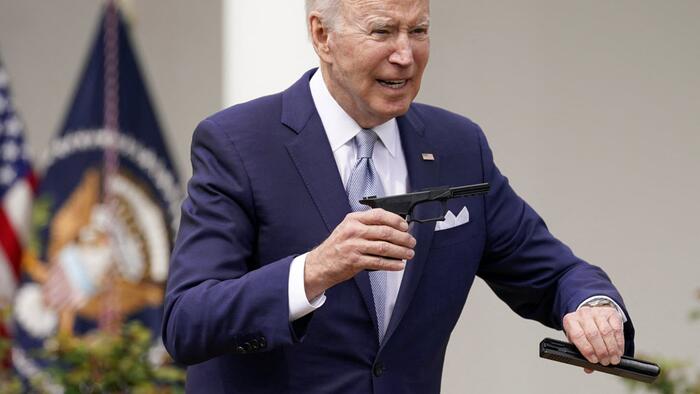The recent shooting at Abundant Life Christian School in Madison, Wisconsin, has reignited debates over gun control, with President Biden and others advocating for stricter measures. However, these calls often seem disconnected from the specifics of the crime and constitutional rights of gun ownership. Biden’s push for a ban on assault weapons following an incident involving a handgun reflects this disconnection. The shooting allegedly involved a juvenile who used a 9mm handgun, which highlights the limitations of the calls for gun control measures that would predominantly target firearms that the assailant was not legally supposed to possess. Despite the advocacy for stringent background checks, the reality is that the shooter in this case would not have been subjected to such regulations.
Moreover, the controversy revolves around the growing popularity of firearms like the AR-15. With rulings like District of Columbia v. Heller and New York State Rifle & Pistol Association Inc. v. Bruen affirming the individual’s right to bear arms, attempts to ban popular models are often met with constitutional challenges. The AR-15, which is often associated with gun violence, continues to be the most popular firearm in the U.S., frequently used for self-defense, target shooting, and hunting. Gun ownership has risen notably during the COVID-19 pandemic, signaling a broader social trend that makes sweeping regulations on gun ownership increasingly contentious.
The practicality of confiscating certain types of firearms, like the AR-15, is another significant barrier. Politicians who advocate for such measures often do not factor in how challenging it would be to confiscate millions of weapons already in circulation. Given the vast number of guns owned by American citizens, calls for stringent regulations often appear to be more about political incentives than practical solutions. For example, comments from figures like former Congressman Beto O’Rourke suggest a desire to ban the AR-15, yet the feasibility of such a measure remains highly questionable.
Responses from experts like former FBI Deputy Director Andrew McCabe urge a re-evaluation of gun ownership, advocating for changes that promote gun safety and responsibility. However, statements like “changing the context of gun ownership” lack clarity and do not address the underlying constitutional issues. Their vagueness raises questions about the capability of policymakers to propose actionable solutions while also respecting the rights afforded to gun owners by the Constitution.
Recent comments from lawmakers like Rep. Mark Pocan emphasize a need for collective action against gun manufacturers, yet they stop short of delineating specific legislative pathways. Pocan’s calls for “common sense” laws ignore the intricate balance between the desire for greater gun control and the established constitutional framework. While the intention to enhance public safety is clear, the proposals that arise seem to be out of touch with the nuances of Second Amendment rights in the U.S.
Ultimately, while the desire for more effective measures against gun violence is laudable, it is critical for public officials to foster an honest dialogue about the possibilities and limitations of gun control legislation. The assertion that such tragedies are preventable with stricter laws overlooks the complexities of current laws, societal conditions, and the overarching constitutional protections. Misleading claims detract from genuine efforts to address gun violence, emphasizing the necessity for transparency and practicality in discussing solutions for the American public.

